Yale welcomes these distinguished scholars and practitioners to campus in 2018-19 as Presidential Visiting Fellows |
|
| Presidential Visiting Fellows are appointed as part of the Faculty Excellence and Diversity Initiative. Approximately 10 exceptional scholars and practitioners who contribute to inclusive excellence will be appointed each year during the initiative | |
Faculty of Arts and Sciences |
|
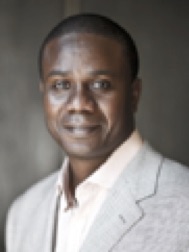 |
Enoch Aboh Enoch O. Aboh is a Professor of Linguistics at the University of Amsterdam, where he investigates the learnability of human language with a special focus on comparative syntax; language creation, and language change. His main publications include The Emergence of Hybrid Grammars (2015), The Morphosyntax of Head-Complement Sequences (2004), as well as several journal papers, book chapters and edited volumes. He has taught the LSA institute MIT/Harvard and the LOT schools (2005, 2010, 2014). As a co-organizer of the African Linguistics School, which he also teaches, he is strongly engaged in working toward a better transfer of knowledge of linguistics to Africa. |
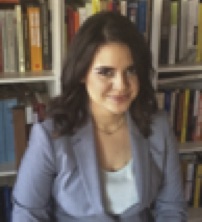 |
Natalie Aviles Dr. Aviles received her Ph.D. in Sociology & Science Studies from the University of California, San Diego in 2016. She specializes in Sociological Theory, Science and Technology Studies (STS), Cultural Sociology, Science and Innovation Policy, and Sociology of Health Care. Her research deploys historical-archival, qualitative interviewing, and computational methods to explore how federal laboratories in the U.S. National Cancer Institute have guided scientific and public policy innovation from the 1960s to the present day. She has authored theoretical work on sociological explanation and empirical work on the material and cultural dimensions of cancer research published in top Sociology and STS journals Sociological Methods & Research, Social Studies of Science, and Science, Technology, & Human Values. |
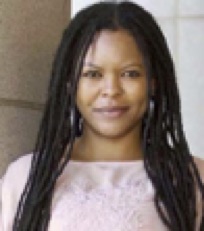 |
Simone Browne Simone Browne is Associate Professor in the Department of African and African Diaspora Studies at the University of Texas at Austin. Her first book, Dark Matters: On the Surveillance of Blackness, was awarded the 2016 Lora Romero First Book Publication Prize by the American Studies Association, the 2016 Surveillance Studies Book Prize by the Surveillance Studies Network, and the 2015 Donald McGannon Award for Social and Ethical Relevance in Communications Technology Research. Simone is also a member of Deep Lab, a feminist collaborative composed of artists, engineers, hackers, writers, and theorists. During her year at Yale University as a Visiting Presidential Fellow she will teach, and conduct new research on electronic waste and effective microorganism to ask questions about the ecology of surveillance technologies, as well as curate an upcoming exhibition and year of arts programming at the University of Texas at Austin on Black women’s creative engagement with surveillance. |
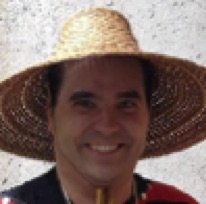 |
James Crippen James Crippen works mostly on Tlingit and the Na-Dene (Athabaskan–Eyak–Tlingit) languages, with some side interests in Chinook Jargon and other Pacific Northwest languages. His dissertation research is a formal syntax model for phrasal dislocation in Tlingit, and a model of how dislocation is interpreted in information structure. His research is generally on the interfaces between morphology, syntax, semantics, and information structure. Some of his other interests are the lexicography of Na-Dene languages, historical reconstruction and morphosyntax in the Na-Dene family, the articulation and typology of ejective fricatives, computational methods in historical linguistics, and language contact phenomena in the Pacific Northwest. |
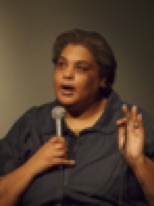 |
Roxane Gay Professor Gay is a prominent writer and Associate Professor of English at Purdue University. She is Haitian American, and as a journalist and author on feminism, race, gender, and their intersections. Roxane Gay’s writing appears in Best American Mystery Stories 2014, Best American Short Stories 2012, Best Sex Writing 2012, A Public Space, McSweeney’s, Tin House, Oxford American, American Short Fiction, Virginia Quarterly Review, and many others. She is a contributing opinion writer for the New York Times. She is the author of the books Ayiti, An Untamed State, the New York Times bestselling Bad Feminist, the nationally bestselling Difficult Women and the New York Times bestselling Hunger. She is also the author of World of Wakanda for Marvel. She has several books forthcoming and is also at work on television and film projects.
|
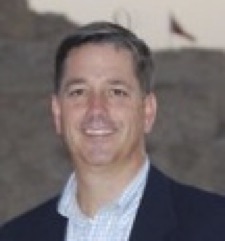 |
Jeffrey Macris Dr. Jeffrey R.Macris is a Permanent Military Professor at the U.S. Naval Academy. He also teaches a History of the Modern Middle East course at Pepperdine University’s Washington DC program. A former U.S. Navy pilot and U.S. Naval Academy Associate Professor, Dr. Macris holds an MA and PhD (with Distinction) from Johns Hopkins University’s School of Advanced International Studies, and a linguist certificate in Arabic from the U.S. Defense Language Institute in Monterey, California. He has published numerous articles and two books on historical security issues related to the Persian/Arabian Gulf: “The Politics and Security of the Gulf: Anglo-American Hegemony and the Shaping of a Region,” and “Imperial Crossroads: The Great Powers and the Persian Gulf.” He also holds a Federal Aviation Administration Airline Transport Pilot license, and is certificated as a Certified Flight Instructor (single/multi engine, instrument, airplane).
A public education advocate and volunteer, Dr. Macris recently earned the State of Maryland’s “Parent Involvement Matters” award for his leadership in turning around two failing middle schools in Annapolis. Dr. Macris currently co-chairs, along with the State School Superintendent, the Maryland State Department of Education’s Family Engagement Council. Dr. Macris is a United States armed forces veteran, having retired from the United States Navy at the rank of Captain.
|
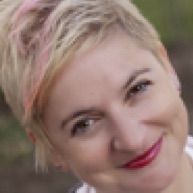 |
Ágnes Mócsy Dr. Mocsy is a Professor of Physics and Astronomy at the Pratt Institute, Brooklyn, NY, and a researcher in theoretical physics, holding a visiting scientist appointment at Brookhaven National Laboratory, Long Island, NY. She is a public speaker, promoter of science and evidence-based reasoning, explorer of the gender and racial landscape of science, and engager of science as muse for art and design. As filmmaker, her first film Smashing Matters: Behind the Science Scene premiered at the New Haven Docuentary Film Festival. In 2016 she was elected as Fellow of the American Physical Society.
As physicist, Ágnes studies the theory of strong nuclear interactions, the force holding the atomic nucleus together, making the existence of protons an neutrons possible. She investigates the matter formed at temperatures as high as several trillion degrees. This matter permeated the infant universe a microsecond after the big bang and is now re-created at Brookhaven National Laboratory, NY, and CERN, Switzerland. She held positions at the Niels Bohr Institute in Copenhagen, Denmark, as Alexander von Humboldt Fellow at the Goethe University in Frankfurt, Germany, and the RIKEN-BNL Center at Brookhaven National Laboratory.
|
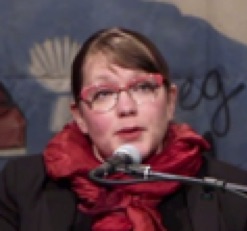 |
Zoe Todd Professor Todd (Métis/otipemisiw) is an assistant professor in the Department of Sociology and Anthropology at Carlton University in Canada. She is from Amiskwaciwâskahikan (Edmonton), Alberta, Canada. She writes about fish, art, Métis legal traditions, the Anthropocene, extinction, and decolonization in urban and prairie contexts. She also studies human-animal relations, colonialism and environmental change in north/western Canada. Her research is on fish, colonialism and legal-governance relations between Indigenous peoples and the Canadian State. In the past, she has researched human-fish relations in the Inuvialuit Settlement Region, and also conducted work on Arctic Food Security in the Inuvialuit Settlement Region in the Northwest Territories, Canada. Her current work focuses on the relationships between people and fish in the context of colonialism, environmental change and resource extraction in Treaty Six Territory (Edmonton, amiskwaciwâskahikan), Alberta and the Lake Winnipeg watershed more broadly. Her work employs a critical Indigenous feminist lens to examine the shared relationships between people and their environments and legal orders in Canada, with a view to understanding how to bring fish and the more-than-human into conversations about Indigenous self-determination, peoplehood, and governance in Canada today.
|
School of Law |
|
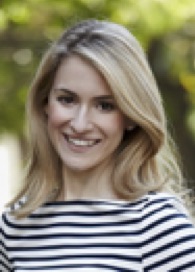 |
Mariana Pargendler is a Professor of Law at Fundação Getulio Vargas (FGV) Law School in São Paulo, Brazil, where she also directs the Center for Law, Economics and Governance. She also holds an appointment at the NYU School of Law, Buenos Aires campus, and previously taught as a visiting professor of law at Stanford Law School. She is a 2011 graduate of Yale Law School (JSD) and was a John M. Olin Fellow in Law and Economics. Before her studies at YLS, she graduated at the top of her class from the Federal University of Rio Grande do Sul. |
School of Medicine |
|
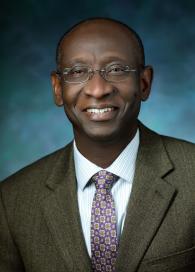 |
Rexford Ahima Dr. Ahima is the Director of the Division of Endocrinology, Diabetes and Metabolism, Bloomberg Distinguished Professor of Diabetes in the Schools of Medicine, Public Health and Nursing, and the leader of the Johns Hopkins Diabetes Initiative.
Dr. Ahima received his intercalated BSc research training in Endocrinology in the Middlesex Hospital Medical School, University of London, MD from the University of Ghana, and PhD from Tulane University in New Orleans, Louisiana. After completing his internship and residency training in Internal Medicine at the Albert Einstein College of Medicine, Jack D. Weiler Hospital and Jacobi Medical Center in New York, Dr. Ahima did his clinical and research fellowship training in Endocrinology, Diabetes and Metabolism at the Beth Israel Deaconess Medical Center and Harvard Medical School in Boston.
|